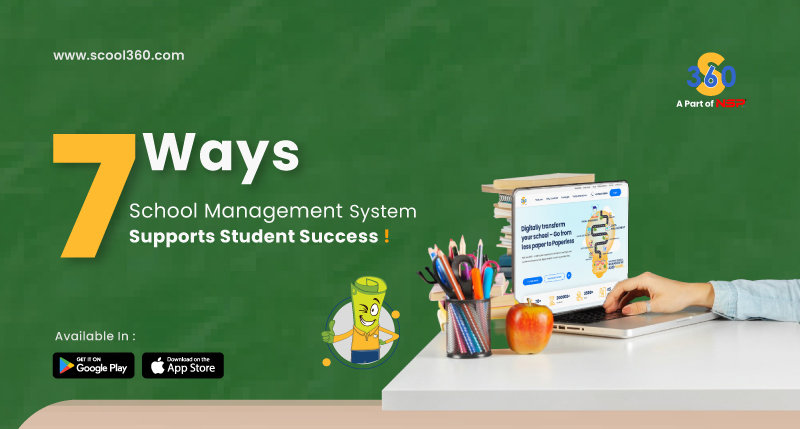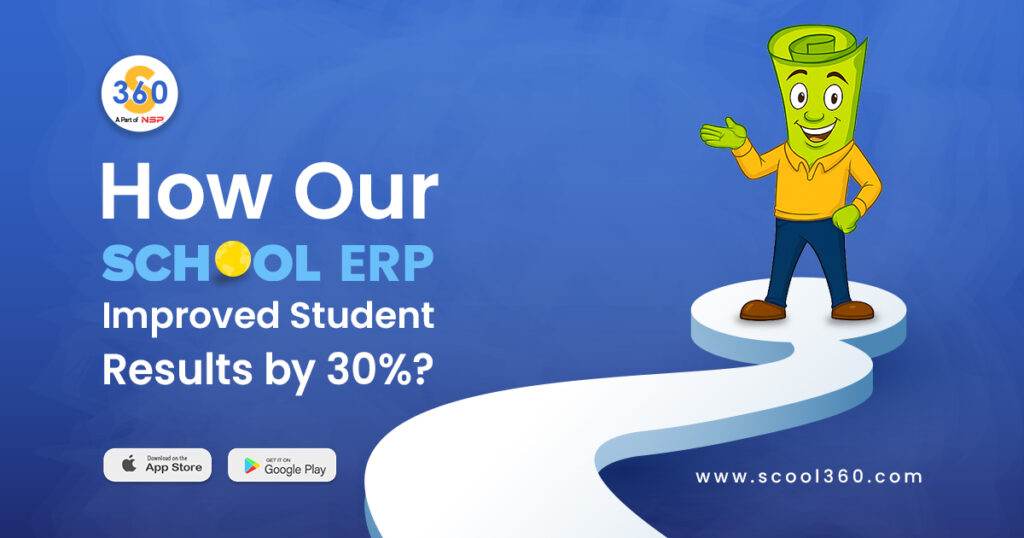Understanding the National Education Policy 2020: Role of School ERP in Facilitating Educational Ecosystem
August 12, 2025
National Education Policy 2020

The National Education Policy (NEP) 2020, introduced by the Government of India, marks a landmark shift in the approach to education in the country. With a forward-looking vision, the NEP 2020 aims to transform the Indian education system by making it more inclusive, innovative, and accessible. The policy seeks to focus on holistic development, critical thinking, and the integration of technology to ensure the quality and reach of education.
While NEP 2020 covers various aspects ranging from curriculum reforms to teacher training, one key area that has garnered attention is the use of technology in education. The introduction of digital tools, the promotion of blended learning, and the establishment of online platforms for learning are among the major technological goals of the policy. This is where Scool360’s comes into play, acting as a bridge between the policy’s goals and its practical implementation in schools.
Features of National Education Policy 2020
Before diving into how a School Management ERP Software can facilitate NEP 2020’s objectives, let us first explore some of the most important aspects of the policy:
- Holistic and Multidisciplinary Education: NEP 2020 emphasizes a well-rounded education that nurtures critical thinking, creativity, and physical well-being. It promotes multi-disciplinary learning across subjects and encourages students to explore diverse fields.
- Flexibility and Choice Students will have greater flexibility in choosing subjects and learning paths, allowing for a personalized education approach.
- Focus on Early Childhood Care and Education (ECCE): The policy stresses the importance of foundational learning and aims to universalize early childhood education.
- Blended Learning: NEP 2020 advocates for the integration of online and offline learning, emphasizing the use of digital tools and resources to enhance learning outcomes.
- Teacher Empowerment: Professional development for teachers and a strong focus on upskilling is central to the policy’s vision.
- Digital Education and Infrastructure: The policy seeks to harness the potential of digital technology to improve the quality and accessibility of education.
- Assessment Reforms: NEP 2020 envisions a shift from rote memorization to competency-based assessments.
Understanding The Vision Of National Education Policy 2020
National Education Policy NEP 2020 aims to:
- Shift from rote learning to conceptual understanding
- Encourage multilingualism and regional language learning
- Promote vocational training and skill development
- Integrate technology in teaching and learning
- Improve governance and school operations
- Enhance teacher training and accountability
- Ensure equity and inclusion for all students
How School ERP Can Facilitate NEP 2020
It is pivotal to implement NEP 2020 by streamlining administration, improving communication, and enabling efficient management of educational resources. Here is how School ERP can support the goals of NEP 2020:
1. Supporting Holistic Education and Multidisciplinary Learning
- The NEP 2020 encourages schools to offer a wide range of subjects, allowing students to engage in multi-disciplinary learning.
- School Software can manage timetables, subject allocations, and track students’ progress across various subjects. With features such as subject-wise analytics, student performance tracking, and customized reporting, schools can ensure that students are receiving a balanced education that aligns with the policy’s emphasis on diverse learning paths.
2. Facilitating Blended and Online Learning
One of the core pillars of NEP 2020 is blended learning. School ERP systems can support this by integrating digital learning resources, online classrooms, and e-learning modules into the existing school ecosystem.
For example, the system can allow teachers to upload digital content, conduct virtual classes, and share assignments or quizzes online. By enabling seamless communication between teachers, students, and parents, School ERP creates a holistic digital environment that fosters flexible learning.
3. Personalized Learning Paths and Progress Tracking
- NEP 2020 emphasizes personalized learning paths for students, allowing them to progress at their own pace. With School ERP, schools can create individualized learning plans and monitor students’ progress across subjects.
- Detailed reports and dashboards allow teachers to identify areas where students may need additional support, ensuring that every student receives the attention they deserve. This data-driven approach aligns with the policy's focus on competency-based assessments and tracking development over time.
4. Enhancing Teacher Professional Development
NEP 2020 underscores the need for continuous professional development of educators. Edutech can help in organizing and managing training sessions, workshops, and webinars for teachers. It can also track teachers’ participation in professional development activities and maintain their skills. Additionally, the system can offer insights into teachers’ performance, helping schools identify areas for improvement.
5. Improved Communication and Collaboration
NEP 2020 highlights the importance of collaboration among students, teachers, and parents. Education ERP Software facilitates better communication through features like real-time notifications, instant messaging, and parent-teacher communication portals. These tools ensure that teachers, parents, and students are always on the same page regarding students’ progress, upcoming assignments, or any changes in the curriculum or timetable.
6. Efficient Administration and Data Management
With the increased focus on digital education In India , schools will need robust data management systems to track and store vast amounts of information. School ERP can help schools maintain accurate records for student enrollment, attendance, grades, and assessments. It ensures that data is centralized, accessible, and secure, which is crucial for smooth operation in the digital age.
7. Streamlining Assessment and Evaluation
- The shift from traditional exams to competency-based assessments as envisioned in NEP 2020 requires a more sophisticated approach to evaluation. School ERP can integrate tools for continuous assessments such as quizzes, assignments, projects, and peer reviews.
- Teachers can grade these assessments, provide feedback, and track individual student performance over time. This helps schools move away from rote learning and encourages a deeper understanding of subjects.
8. Fostering Early Childhood Education
For schools that cater to early childhood education, Online School ERP can be customized to handle the unique requirements of early learners. The system can track the development of foundational skills in literacy, numeracy, and socio-emotional growth, providing insights into each child's progress. Additionally, it can help in managing the curriculum, activities, and parent interactions, which are essential for a child’s early learning experience.
Key Benefits of Implementing School ERP for NEP Execution
- Reduces administrative burden on teachers and principals and improvise school growth
- Improves student engagement and learning outcomes Potentials
- Helps in tracking NEP compliance metrics
- Provides real-time reports for decision-makers and which helps to save a bunch of time and money
- Ensures accountability across departments
- Streamlines school operations for better governance
Challenges Faced BY Schools Without an School ERP System
- Fragmented data and manual reporting
- Poor compliance with NEP mandates
- Teacher burnout due to administrative overload
- Lack of transparency in student performance
- Low parental involvement and outdated communication
Conclusion
The National Education Policy 2020 presents a transformative blueprint for the future of education in India. By embracing technology and innovation, NEP 2020 aims to create an inclusive, flexible, and learner-centered education system. School Management Software systems serve as an invaluable tool in facilitating these changes, offering schools the means to streamline administration, enhance learning experiences, and foster better communication among all stakeholders. With School ERP, schools can not only align with the goals of NEP 2020 but also stay ahead in an increasingly digital education landscape.
Previous Post
How a School ERP System Can Improve Student Results By 30%
Recent News article
Fresh job related news content posted each day


